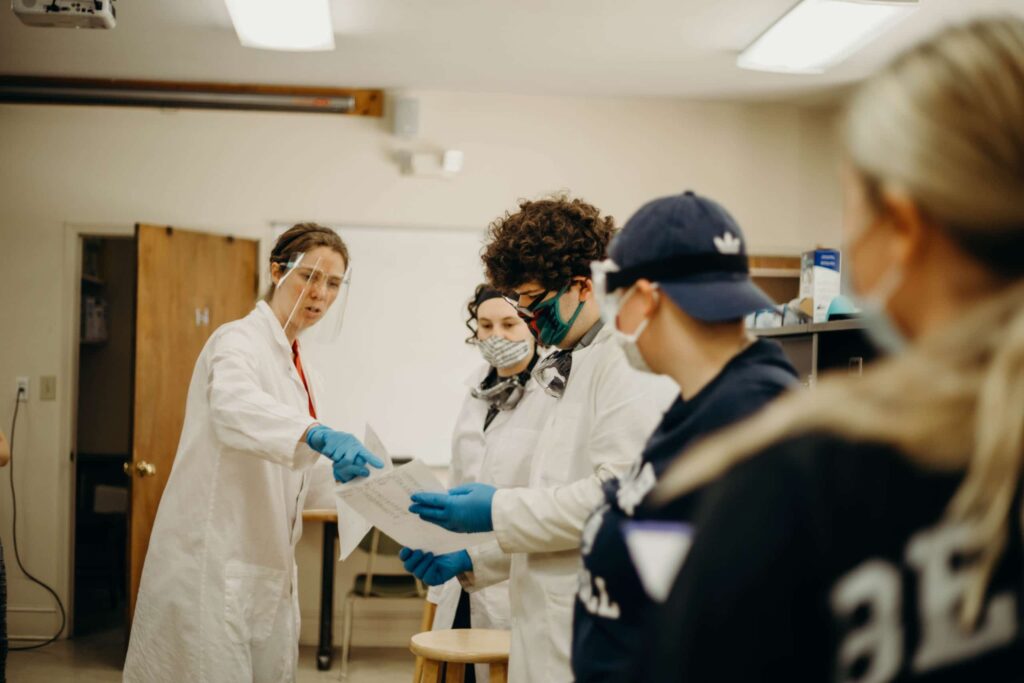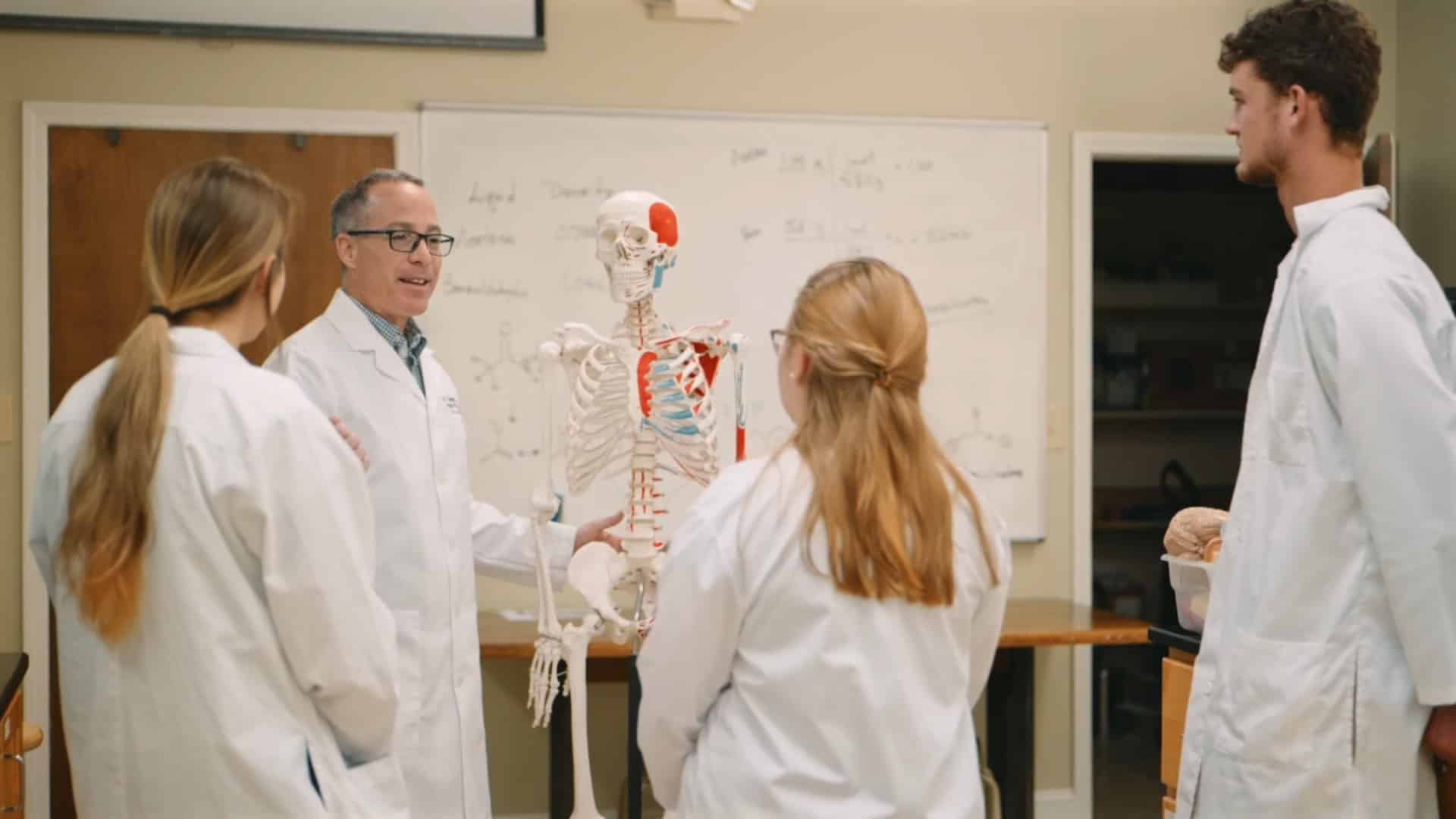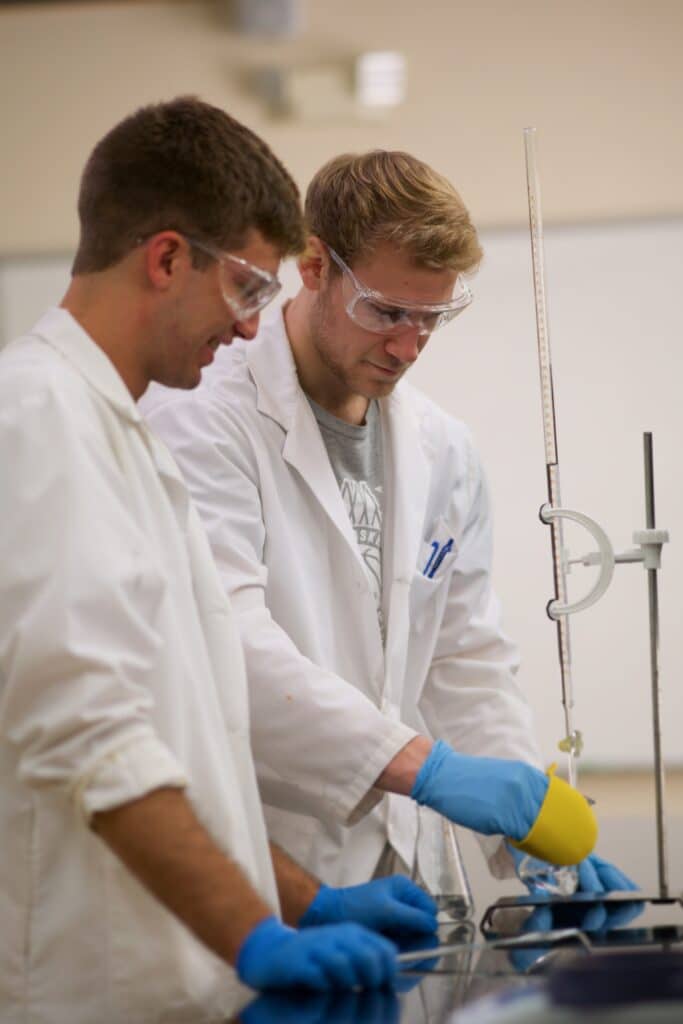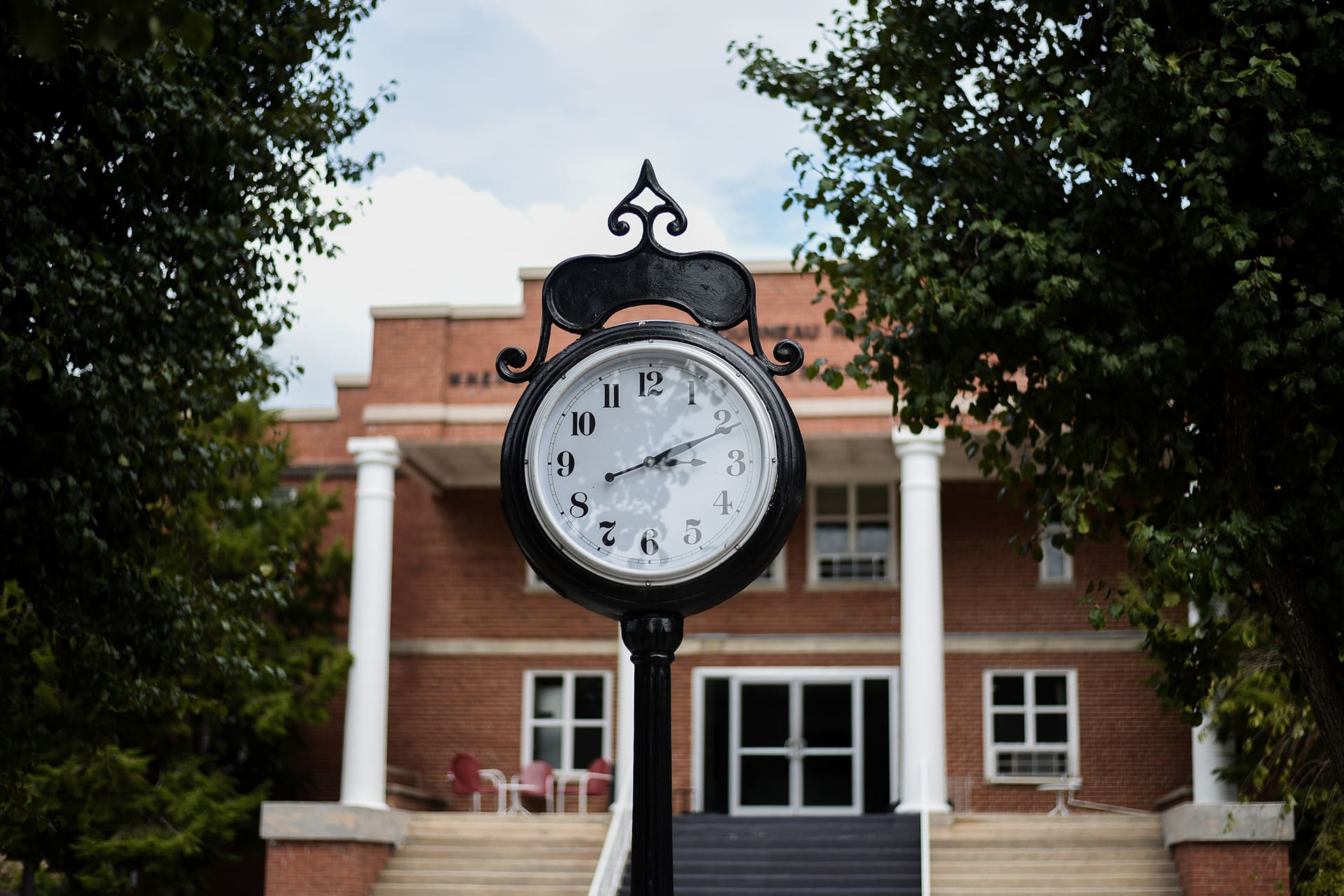Biology

Why Study Biology at TFC?
The Biology major approaches rigorous scientific investigation as a natural outgrowth of a Christian worldview, facilitating the development of knowledge, skills, and character necessary to produce graduates prepared to pursue a career, or graduate study, in the life or health sciences. The Biology major, without specific concentration, offers the most flexible option for students hoping for a career in science or preparation for graduate studies. Along with its flexibility, the Biology major prepares students for a wide variety of career interests allowing students the time needed to decide on their next steps after graduation! Students can also choose a concentration in Ecology & Environmental Science, Public Health, or Pre-Professional.

Concentrations:
- Pre-Professional
- Public Health
- Ecology & Environmental Science
Biology
“What’s exciting in the last few years is that we’ve added three concentrations to our biology program, namely Pre-professional, Public Health, and Ecology & Environmental Science. So, students who are particularly interested in one of those areas have the opportunity for some more specialized training.”
Dr. Kieran M. Clements
Vice President for Academic Affairs


Biology Courses
Our Biology degree is a 126 hour program that includes 71 hours of general education courses (including 30 hours of Bible and Theology), 14 hours of open electives, and 41 hours in Biology-specific courses.
Featured Courses:
- Anatomy and Physiology I & II
- Genetics
- Introduction to Global Public Health
- Biochemistry
- Bioethics

Testimonial

What can you do with a Biology Degree?
When you earn a Biology degree, you will find that there are many career opportunities available to you. Graduates are qualified for a wide range of jobs, such as:
Medical Professional Programs
A common next step for biology graduates are to seeking graduate schooling through medical professional programs. By completing a biology program, students will be prepared to apply for programs in medicine, osteopathy, dentistry, physical or occupational therapy, optometry, chiropractic, veterinary, pharmacy, and other medical professional programs.
Scientist
Many graduates who earn a bachelor’s degree in biology pursue careers in the many areas of science. While some fields may require graduate level education, a biology major will be prepared to enter into a career as an ecologist, environmental chemist, forensic scientist, food science technician, research assistant and more!
Educator
Those who earn a biology degree are particularly passionate about science and health-related fields, which makes them well-suited for a career in education. Many biology graduates pursue careers as health educators, high school science teachers, or seek the graduate education needed to teach college-level biology.
Public Health Careers
The biology degree program provides students with the foundation needed to serve within growing field of public health. Career opportunities in public health include becoming a community health worker, emergency response coordinator, epidemiologist, or one of the emerging positions in Infection Prevention or Data Analysis. A biology program can also prepare you to continue your education in Health Informatics or a policy writer with Health Policy & Administrations.

